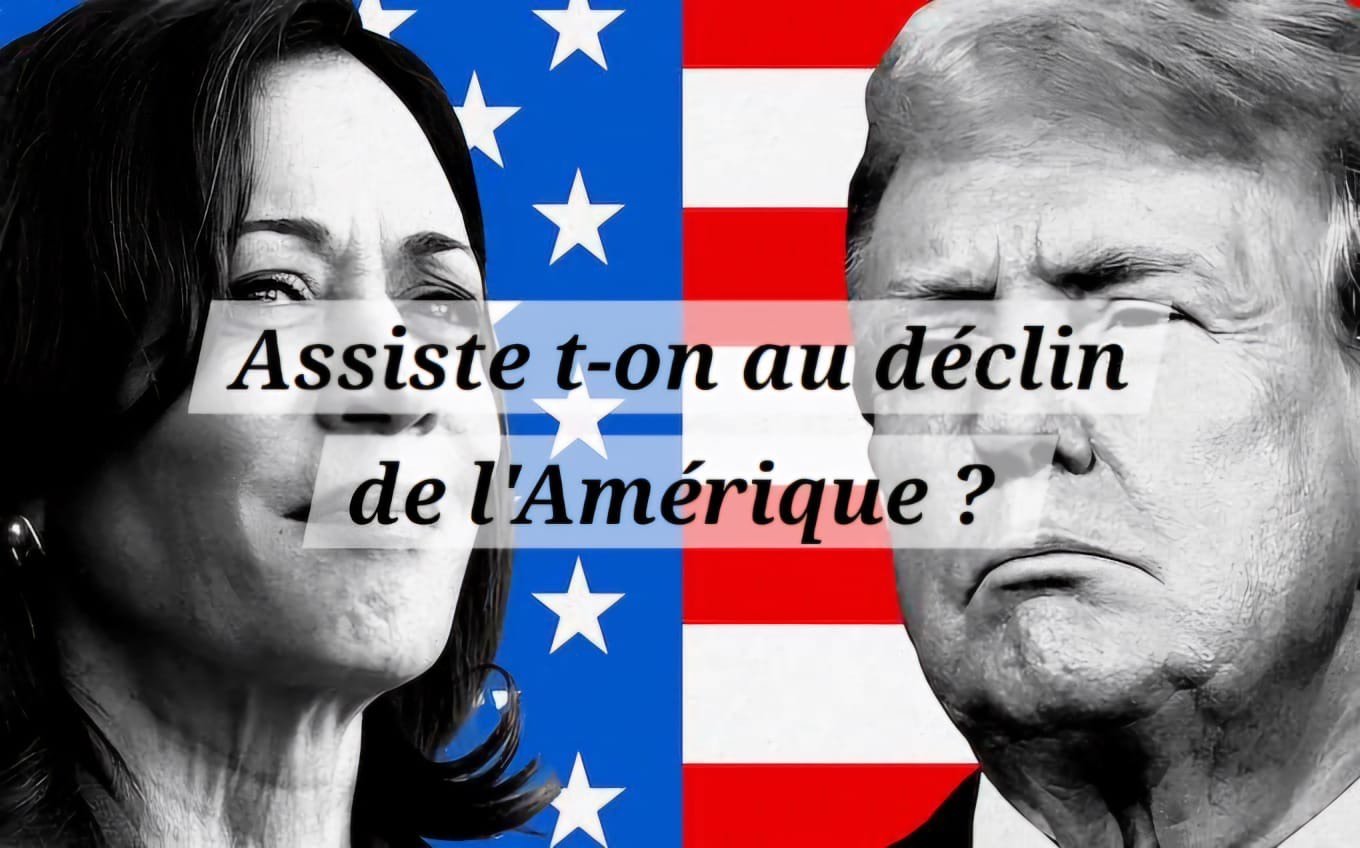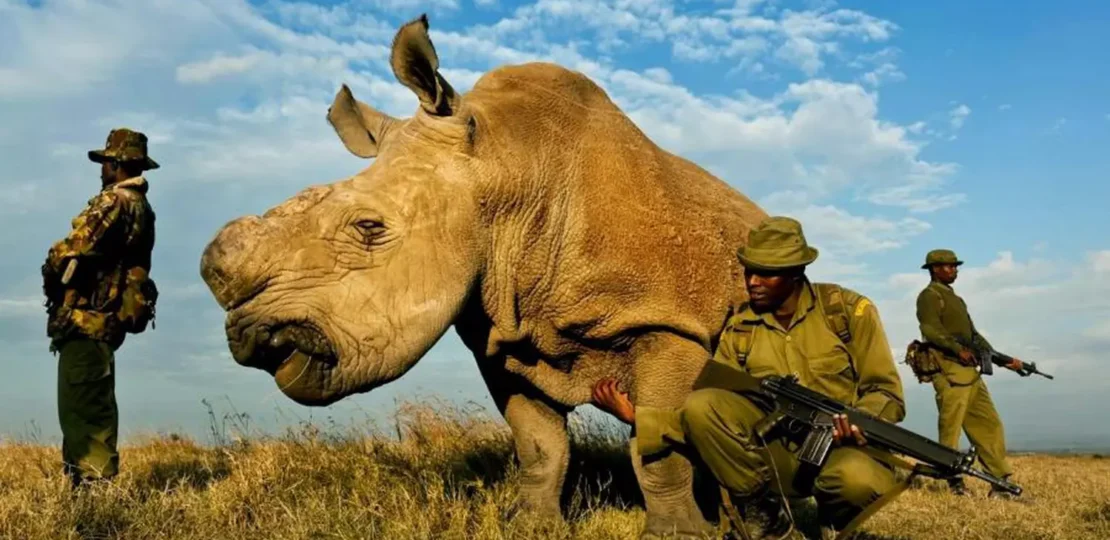
Imagine yourself on safari in a living savannah, where the symphony of life is deafening. Now imagine that same savannah silenced, its majestic inhabitants gone, victims of the silent and deadly war waged by poachers. This is not a scene from a horror film, but the sad reality facing the animal world. Poaching is causing the alarming extinction of many species, upsetting the fragile balance of our ecosystems and directly threatening our societies. The question now is how to stop the growing threat of poaching, which, by decimating biodiversity, compromises not only the ecological balance of our planet, but also the security and well-being of our future societies.
How can we explain the rise in poaching?
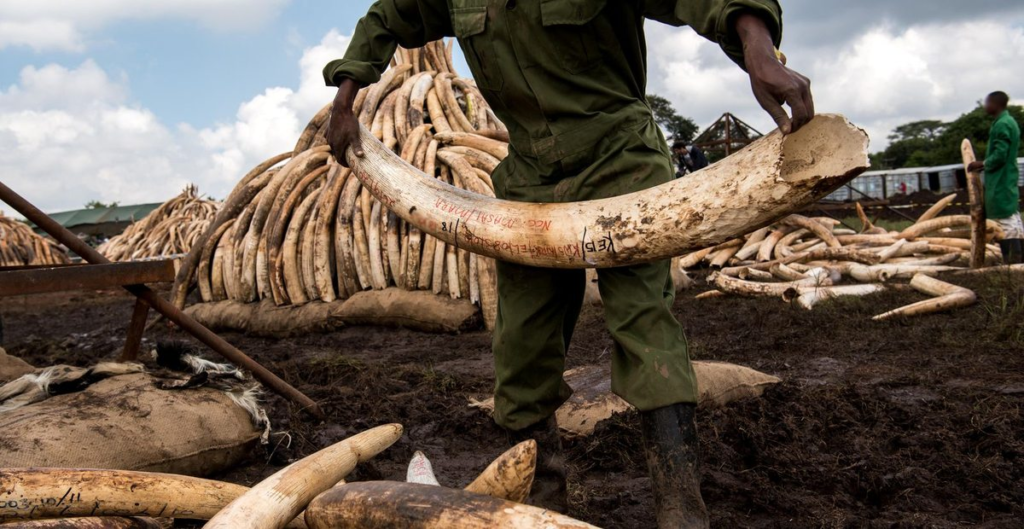
Poaching is a scourge that has been growing for centuries. It has spread to different regions of the world thanks to several factors. Some societies, particularly in Asia, see in poaching the possibility of performing medicinal miracles. Rhinoceroses and tigers are the main victims of this belief. Hundreds of tigers are killed each year for their bones, skin, and other body parts, used in traditional medicine for their supposed healing properties. A single tiger can bring in up to 50 000 $ on the black market.
Poaching also serves to attract tourism. In Thailand, for example, tigers and elephants are held captive and drugged in horrific conditions. The West also profits from poaching, mainly in fashion. It is estimated that around 1 million crocodiles are killed each year for the fashion industry, mainly in Africa and Asia.
The lack of knowledge of our civilizations has also caused the disappearance of a large number of species. In the age of the industrial revolution, the West was desperate to find electricity. A belief of the time was that the brains of sperm whales could be used to produce electricity. This belief led to the disappearance of 80 % of the species due to the hunting that resulted from it.
Some companies view poaching as a highly lucrative business. They ignore the long-term benefits their biodiversity can generate. Some companies are corrupt even within their governments. Countries like Mozambique and Zimbabwe have long accepted bribes from poachers. In Mozambique, for example, the government refused to criminalize poaching until 2014. The Environmental Investigation Agency (EIA) has published reports proving that law enforcement officers in Mozambique were involved in elephant poaching and ivory trafficking, often with links to criminal networks in Asia. It was not until 2014 that a law was finally passed to combat poaching. This followed alarming aerial counts by WWF that claimed that nearly 50 % elephants in the region had been exterminated. "In Quirimbas National Park (on the northeast coast), nearly half of the elephants observed from the air in late 2013 were carcasses. Urgent international action is needed," WWF said in a statement. The ivory was sold 50 dollars (36.70 euros) the kilo locally to intermediaries, or 500 dollars per tusk, and that was so much money that "people who don't usually poach or have no connection to buyers are trying to catch elephants," according to administrator Chande Baldeu.
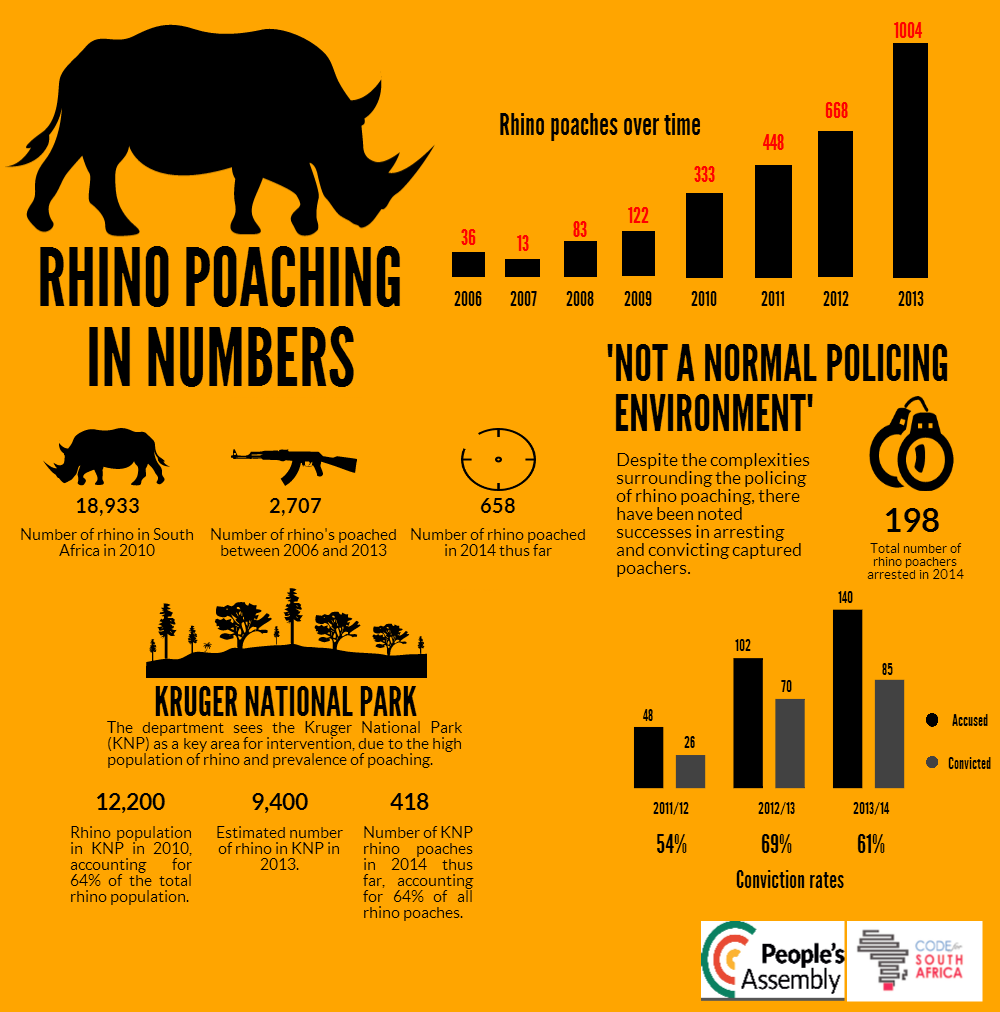
The final factor behind this rise is human nature. It is not new to know that human beings are greedy and like to show off. Some, desperate for prestige, have turned to poaching in order to show off alongside their victims. Richard Leakey, a renowned paleontologist and former director of the Kenya Wildlife Service, illustrates this point when he says, “Poaching not only destroys wildlife; it also feeds the egos of criminals who feel invincible by circumventing the law and accumulating wealth through these destructive acts.”
Why do we need to act?
The disappearance of species is not limited to a crisis in the animal world; it also affects our societies in an indirect but profound way, with diverse and varied consequences.

The first impact of poaching on our societies lies in its aggravating role in global warming. Animals have very specific roles in the world, whether through their place in the food chain or for their actions against global warming. The Amazon jungle, where more than 3 million species and nearly 2,500 species of trees live, is today suffering from deforestation. The destruction of forests destroys the homes, habitat, and food sources of the species that live there. It is estimated that 100,000 species disappear every year in tropical forests. 14 % of the world's annual deforestation occurs in the Amazon. The deforestation suffered by the forest, nicknamed the "green lung" of our planet, promotes the emission of greenhouse gases. The deforestation of tropical forests generates billions of tons of CO2 each year, to the tune of approximately 12 % of annual global anthropogenic greenhouse gas emissions, thus promoting global warming. The poaching of great apes in Central Africa, and particularly gorillas, also contributes to this climate phenomenon. A team led by Edu Effiom, from Lund University (Sweden), observed that where primates have disappeared, species with small and light seeds, carried by the wind over long distances, have supplanted trees with large seeds or hard shells. "Monkeys, elephants, large rodents have been poached to death. And all these animals play an important role in forest dynamics," emphasizes François Bretagnolle, from the University of Burgundy. This phenomenon is called "defaunation".
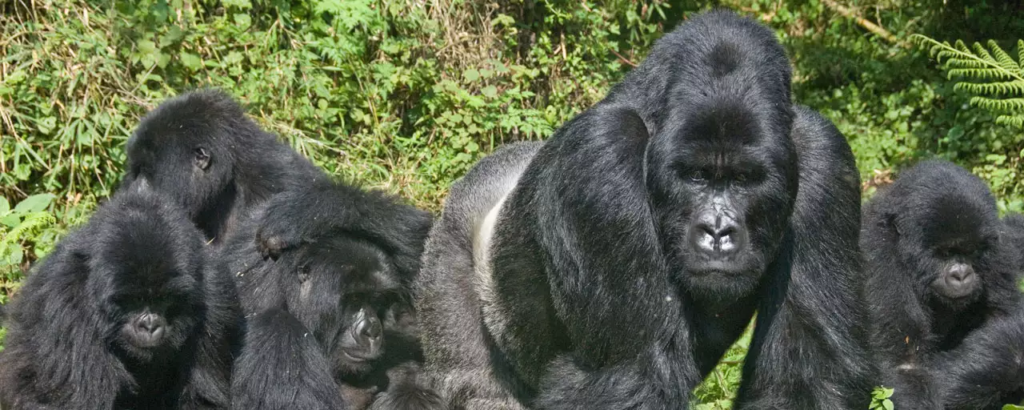
Poaching also impacts our economies. Intensive and illegal fishing leads to overexploitation of edible fish stocks in the ocean. Currently, the amount of fish caught is around 100 million tons per year, four times more than in 1950, according to the FAO. However, this fishing weakens the underwater ecosystem and leads to the extinction of a large number of species. There are fewer and fewer fish in the ocean because of this fishing and the inability of fish to reproduce quickly enough. It therefore directly threatens the future of fishing itself, which risks no longer being profitable. Intensive fishing also jeopardizes the economy of local countries. In several West African countries, at least 10,100,000 of the population earns its income from fishing, such as in Benin (10,100,000), Ghana (10,100,000), Cape Verde (14.6,100,000) and Gambia (15.4,100,000). Inland and coastal fishing, as well as the processing and marketing of fishery products, represent between 6 and 9 million full-time or part-time jobs in sub-Saharan Africa. Fishing reduces the risk to many poor families and helps supplement and diversify their income. Fishing also provides a "safety net" for poor people when other economic opportunities are limited or during seasons when other sources of food, such as agriculture, are in decline. The weakening of the seabed therefore undermines jobs in these countries and, with it, their economies.
We must also act from an ethical point of view. Our species is today responsible for the disappearance of thousands of species. Our species is ultimately, in the history of our planet, very young but yet so destructive. Seeking to save the species of our world is above all preserving life. "When I look into the eyes of an animal, I do not see an animal, I see a living being, I see a friend, I feel a soul", said the author Anthony Douglas Williams. Preserving them is offering future generations the opportunity to grow up with these animals, to see them marvel at them as we all have done.
What to do?
The first thing to do is to get informed. You can't fight against a danger that you don't know about. Getting informed means allowing children to never lose sight of the animal world. Speakers in SVT classes or chapters focusing on saving the world's wildlife could go in this direction. This would allow new generations to become aware of the problem and join the fight. Raising awareness among adults would also be necessary, through broadcasts, advertisements or on social networks. Creating and promoting engaging and viral content on social networks can highlight the importance of the fight against poaching, encouraging users to share and get involved in the cause. This could also lead to an increase in donations. The associations receiving these funds are becoming essential players in the battle to save endangered species. The World Animal Protection association was able to create eight wildlife heritage zones thanks to donations. “These are places where wildlife and communities coexist in harmony, fostering mutual prosperity,” states the organization’s official website.

Another solution would be to invest in companies that are likely to give in to the lure of poaching. A campaign highlighting the long-term benefits of a society that values and protects its wildlife could persuade governments to act. The Global Environment Facility (GEF) has invested millions of dollars in conservation projects in Africa, aimed at protecting endangered species and building the capacity of local governments to combat poaching. For example, in Zimbabwe, the GEF has funded projects to improve the management of national parks and develop economic alternatives for local communities, thereby reducing their reliance on poaching. The World Bank has also sought to promote this message in some African countries. It has funded several projects aimed at strengthening conservation institutions and promoting sustainable development. For example, in Gabon, the World Bank has supported initiatives to develop ecotourism as an economic alternative to poaching, creating jobs for local populations while protecting biodiversity.
A strengthening of justice would also be necessary. In France, a poacher found guilty can be sentenced to 10 years of imprisonment and 7 500 000 euros fine. Increasing the penalty could be one way to reduce the impact of poaching. Companies that use poaching for commercial purposes could also see harsher penalties. Kering (Gucci’s parent company) was at the centre of a scandal in 2017 when it was revealed that the company had used python and other exotic skins in its products, largely through poaching in Southeast Asia. The company was not, however, convicted. Tougher penalties would also help reduce poaching, as has been the case in the past. In 2009, Eagle Side Trading was found to be buying and reselling rhino horn, which is strictly prohibited under international law. The company was heavily sanctioned by the Chinese government, which also shut down its operations.
A final solution would be to give animal protection more space in the political landscape. This could push politicians to take the issue more seriously and devote a larger part of their programs to it. Janez Drnovšek, the former president of Slovenia, was a fervent defender of animal rights and environmental protection. He had used his position to promote animal protection policies. In particular, he advocated for animal protection in various international forums and supported initiatives to improve the living conditions of animals in his country. Politicians could also seek to pass several laws in this direction. The Endangered Species Act, passed in 1973 in the United States, granted the country's animals rights, thus drastically reducing illegal hunting. According to the Ministry of the Interior, the law has saved hundreds of species since its enactment. A more animal protection policy could prove to be a major asset against poaching.
Throughout our history, we have evolved in symbiosis with nature, to the point of dominating it in many ways. But this domination has often meant weakening what has given us so much. Fighting poaching is not just about assuaging our consciences or protecting our societies; it is about recognizing a profound responsibility. Humanity now has a duty, a debt to nature that it must honor.

RELATED POSTS
View all

